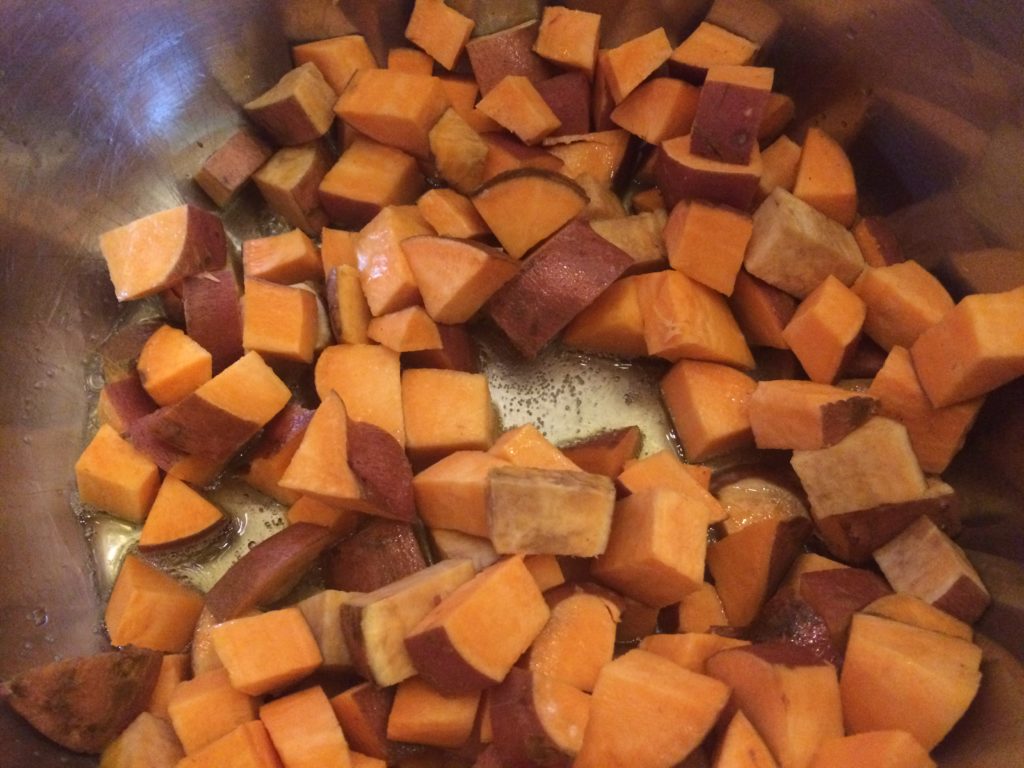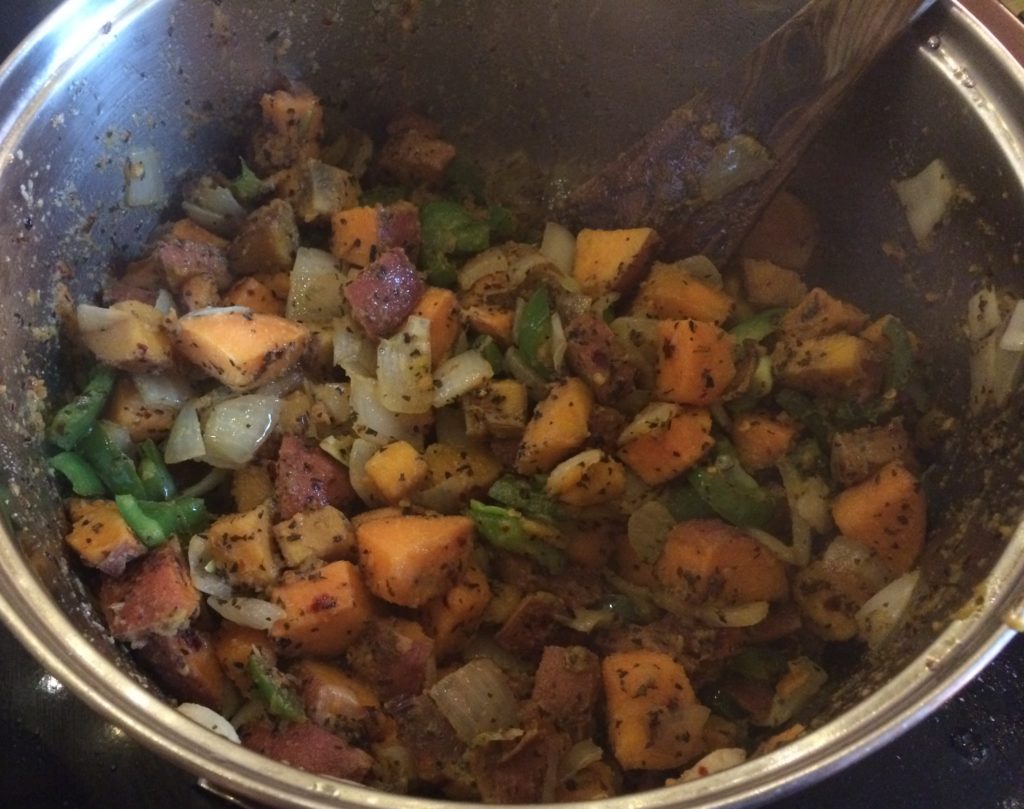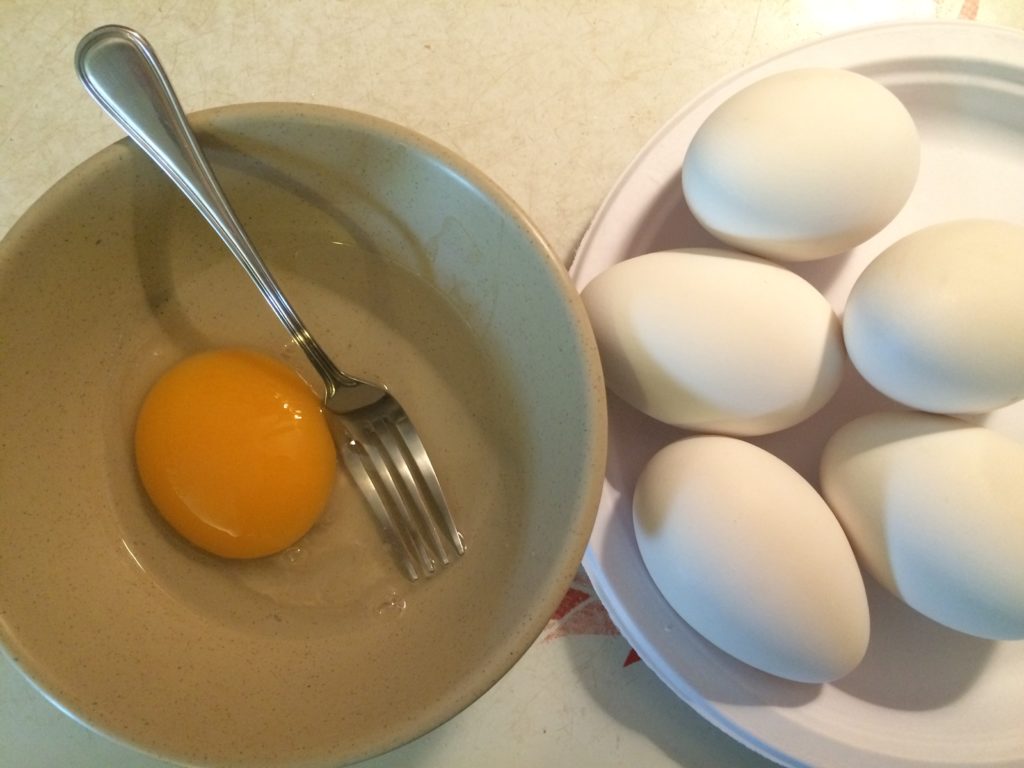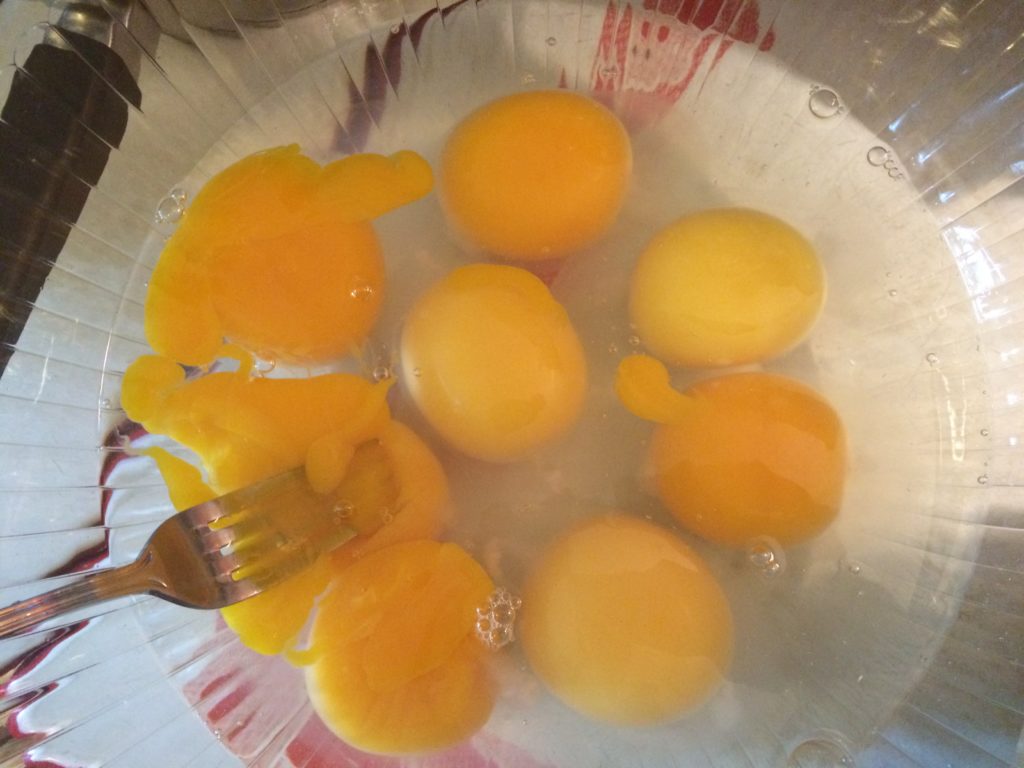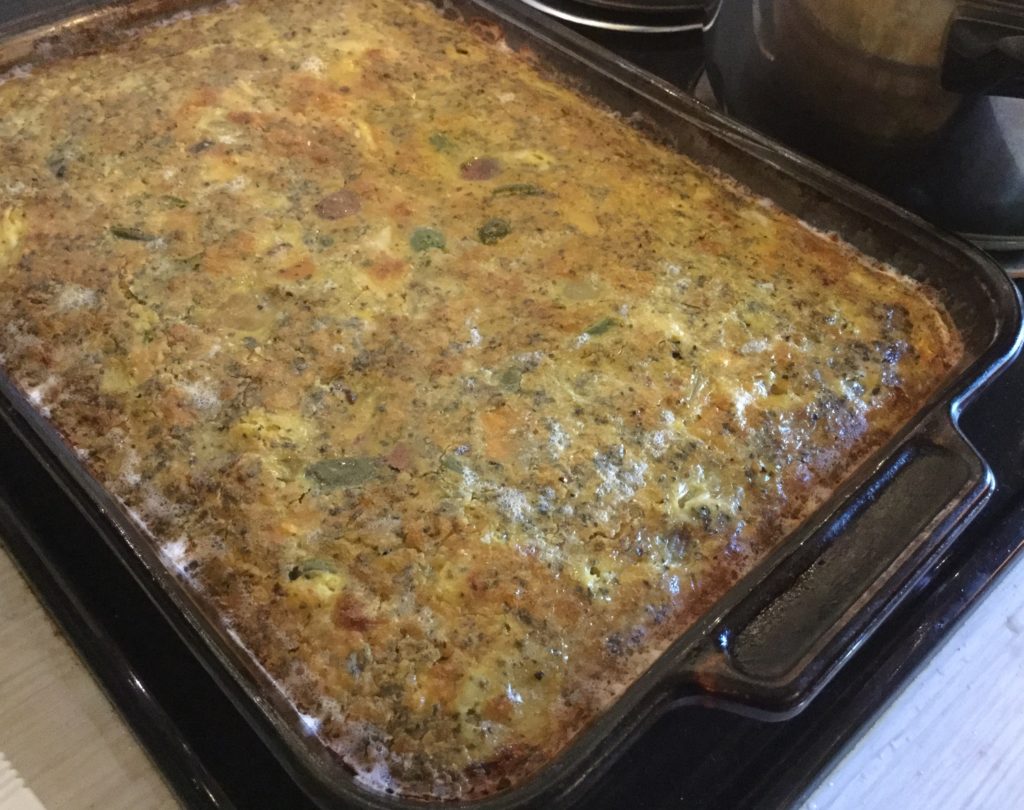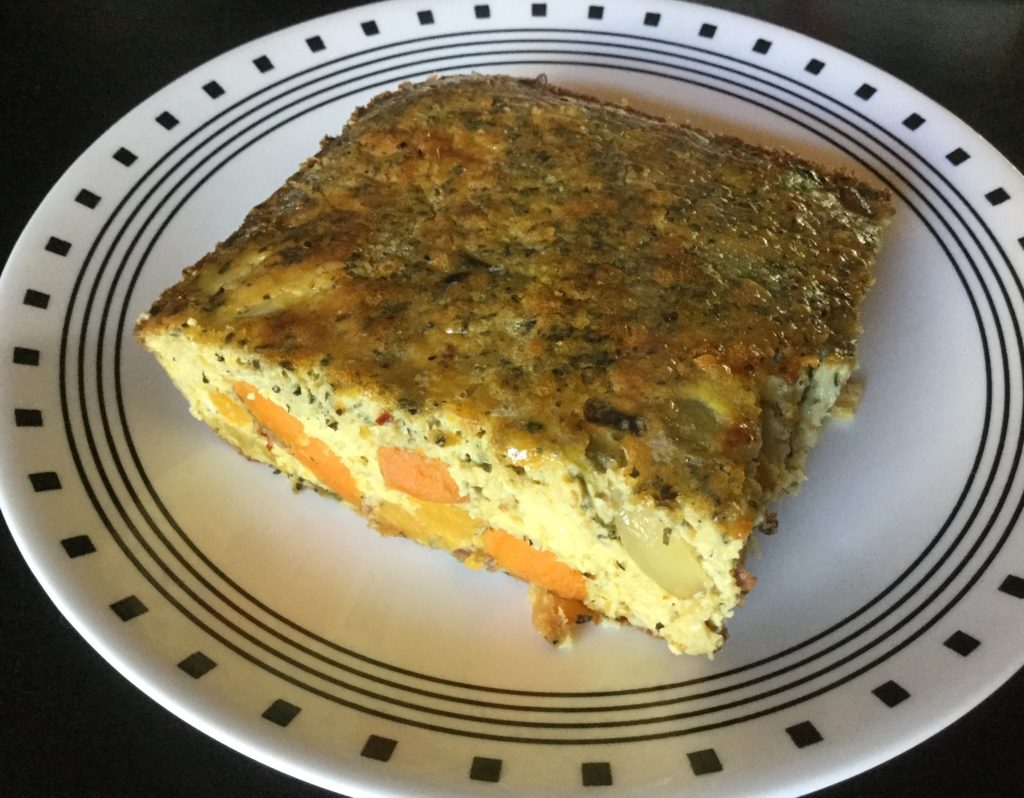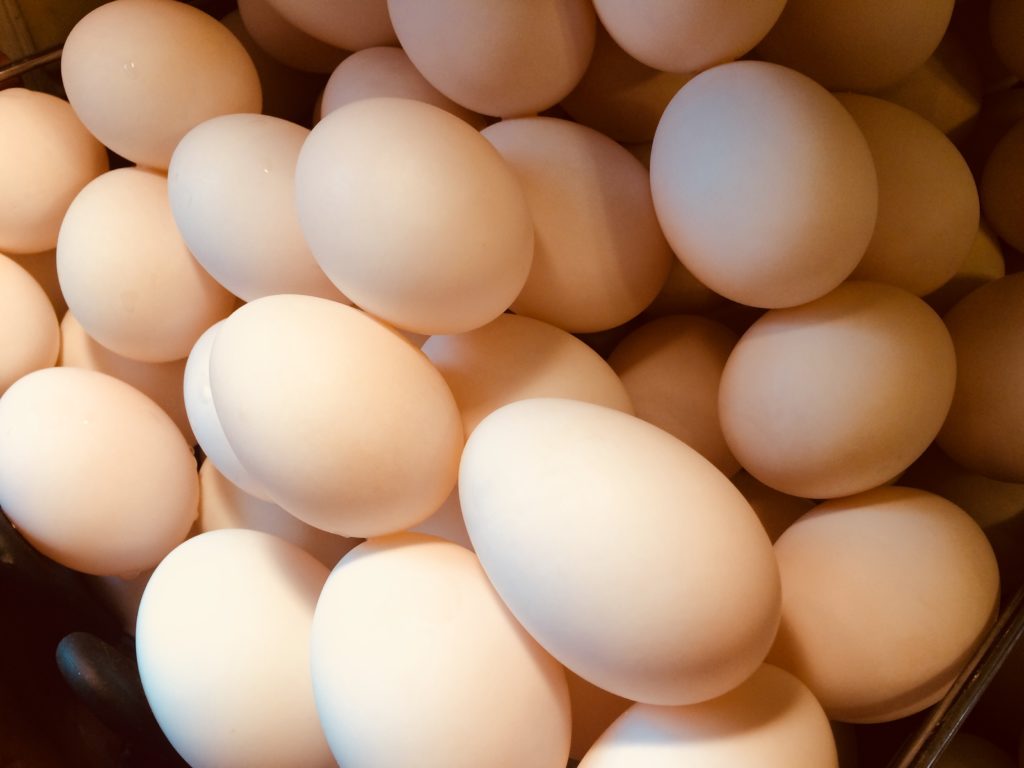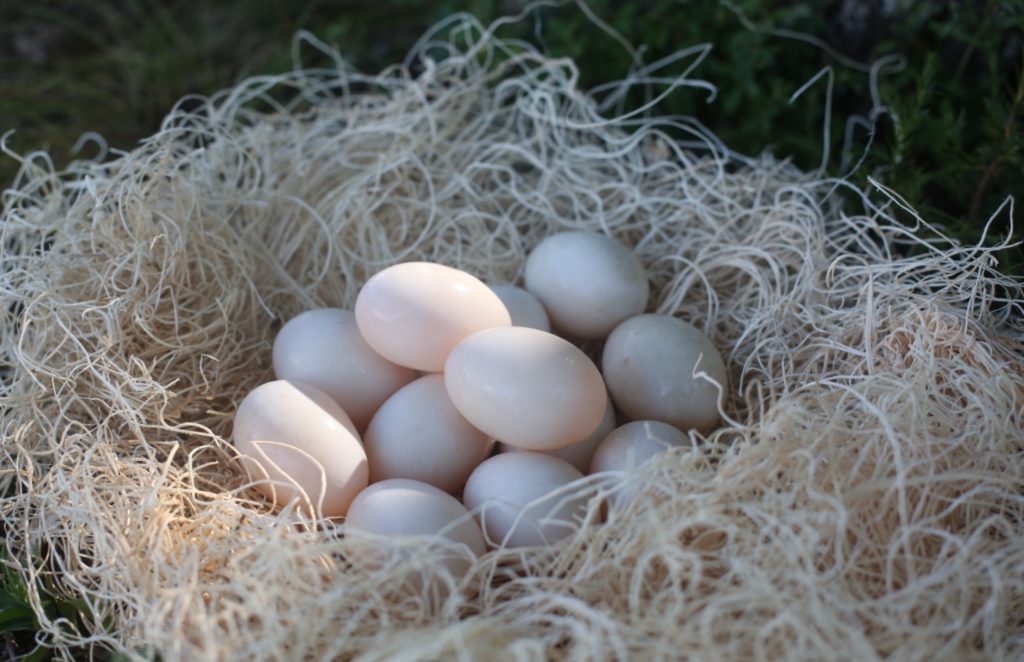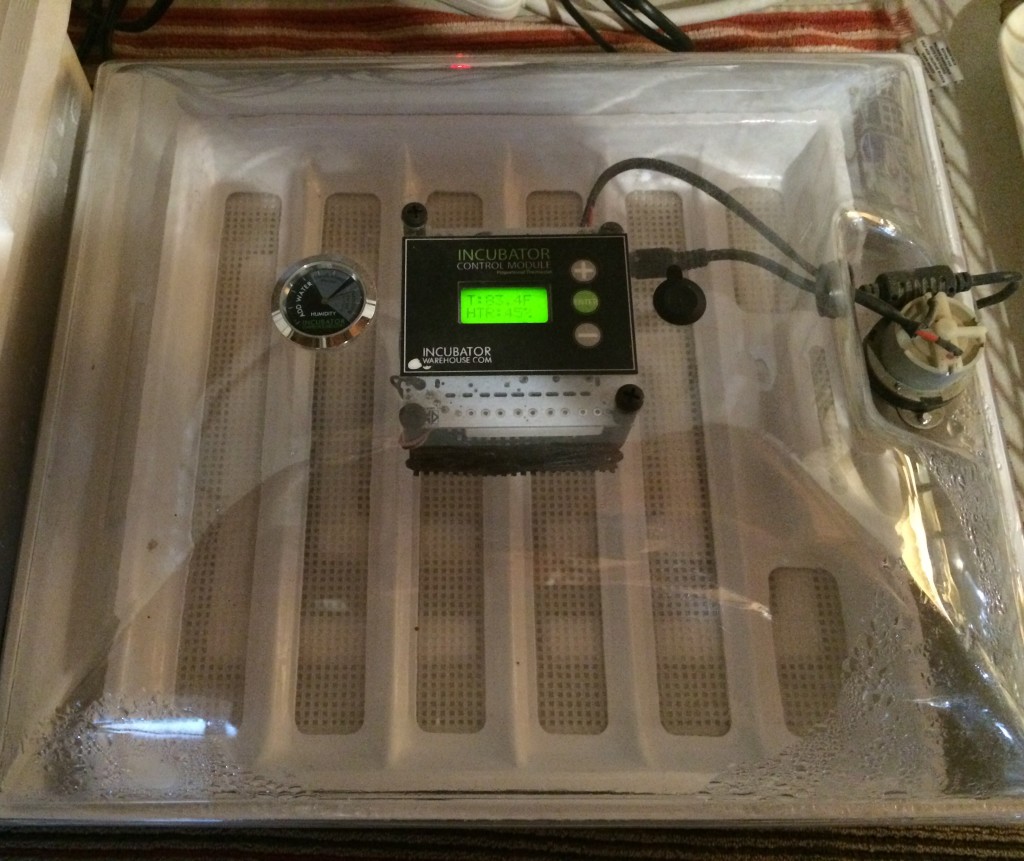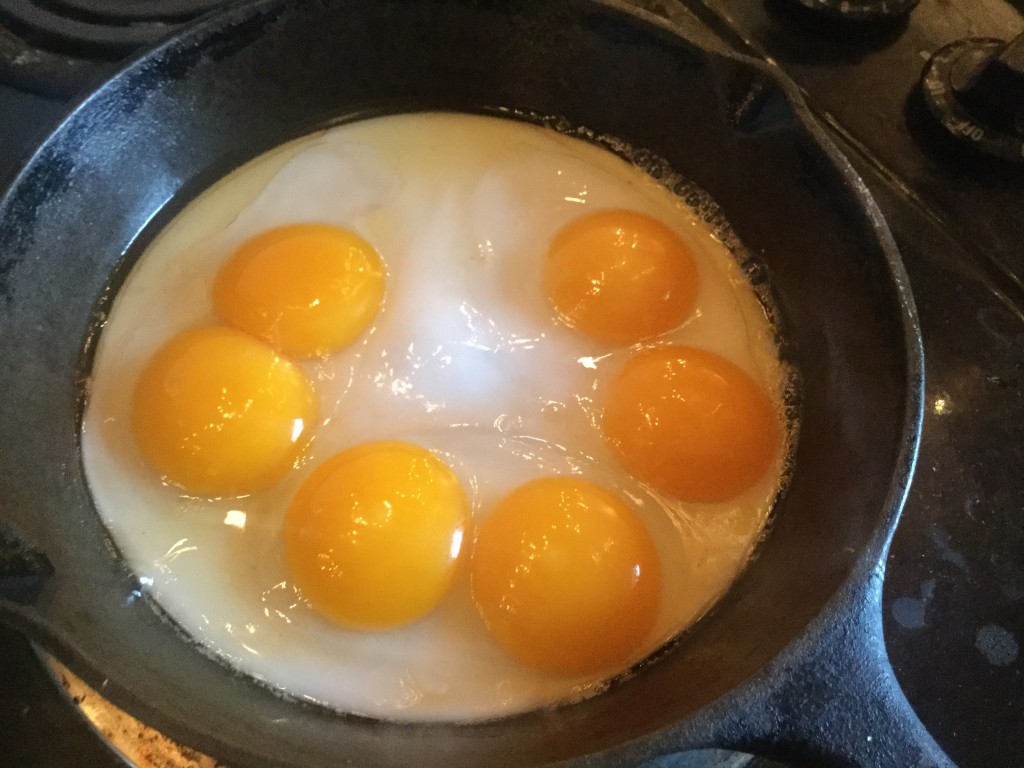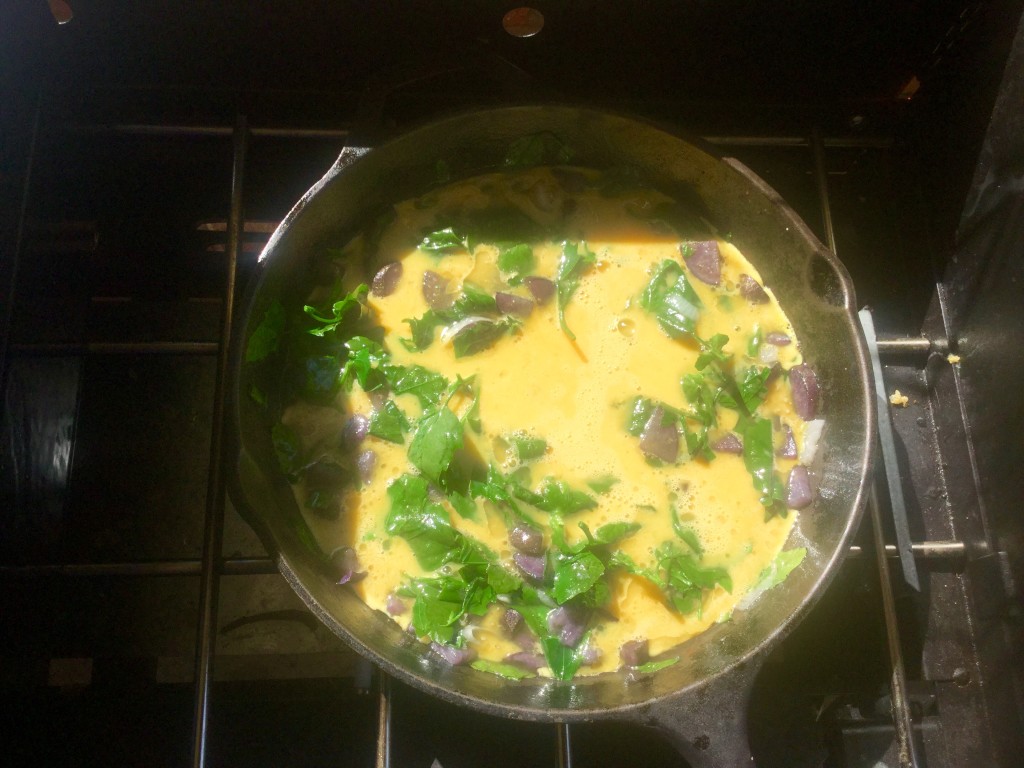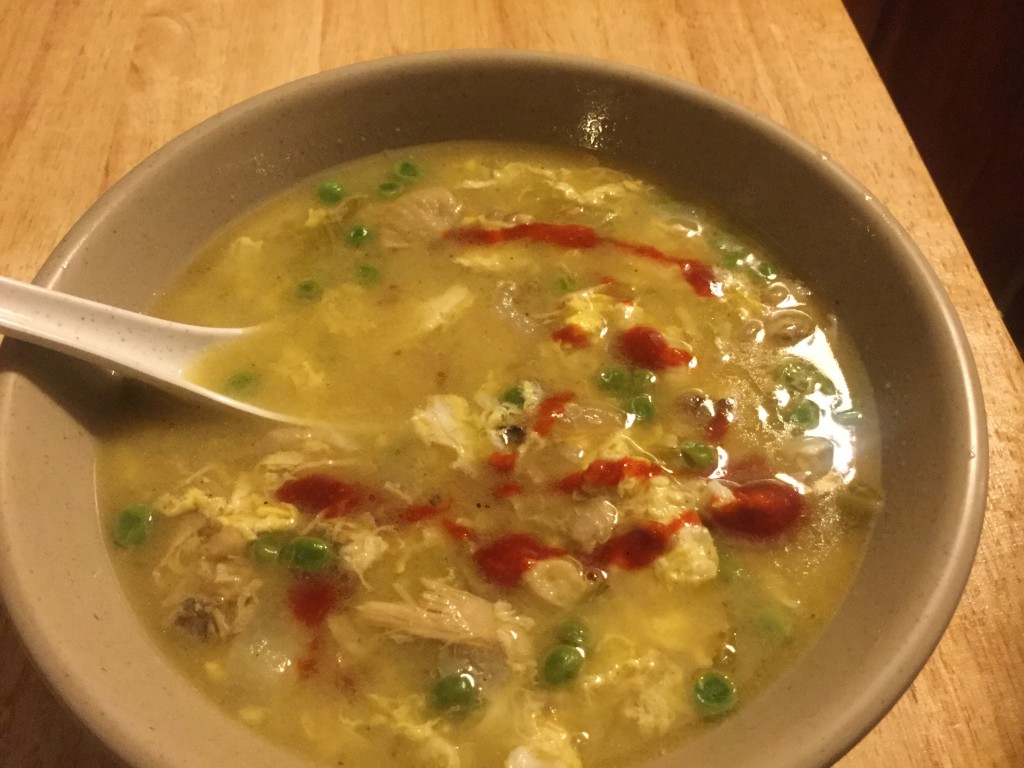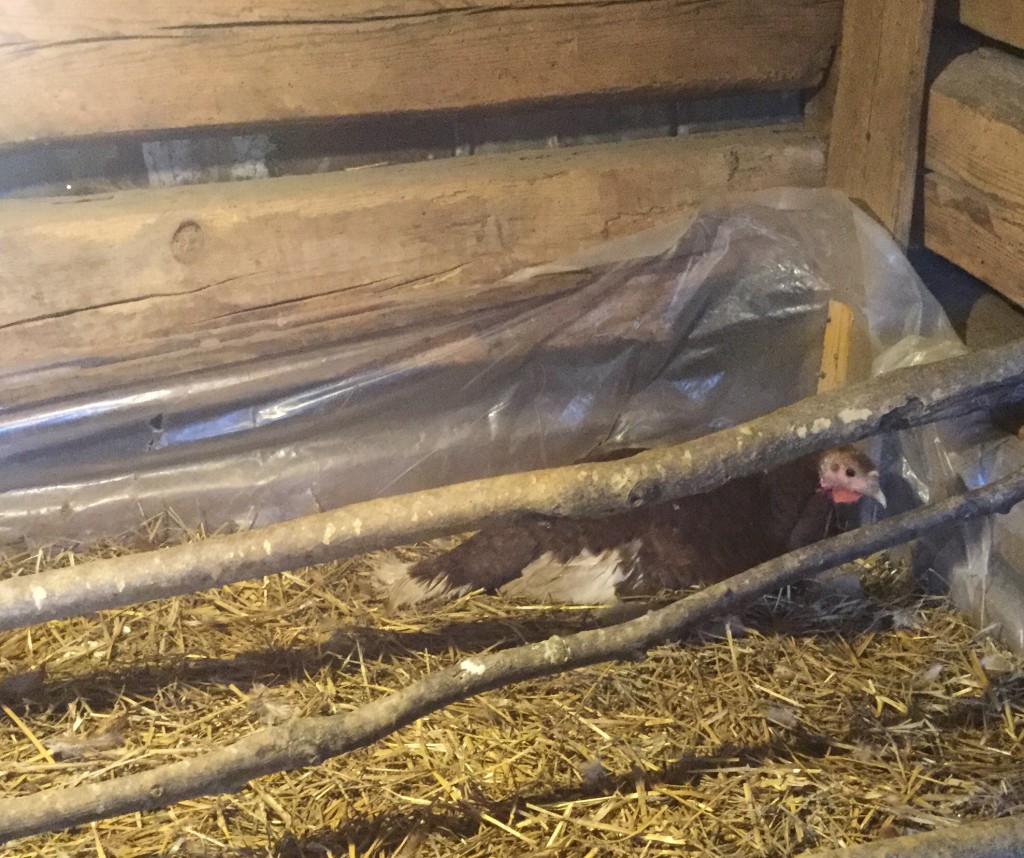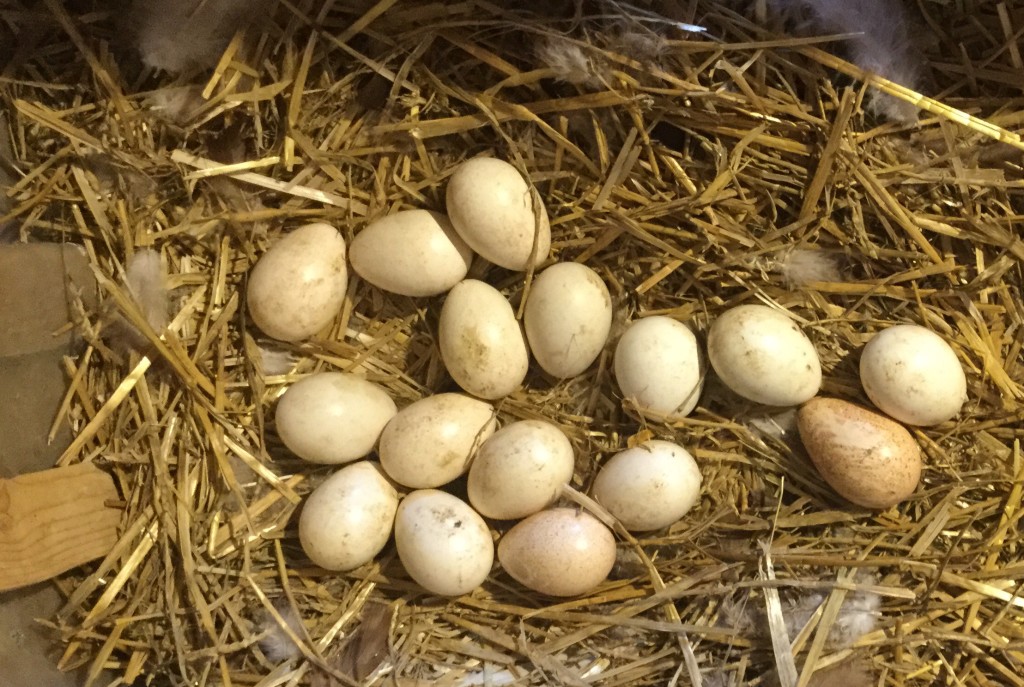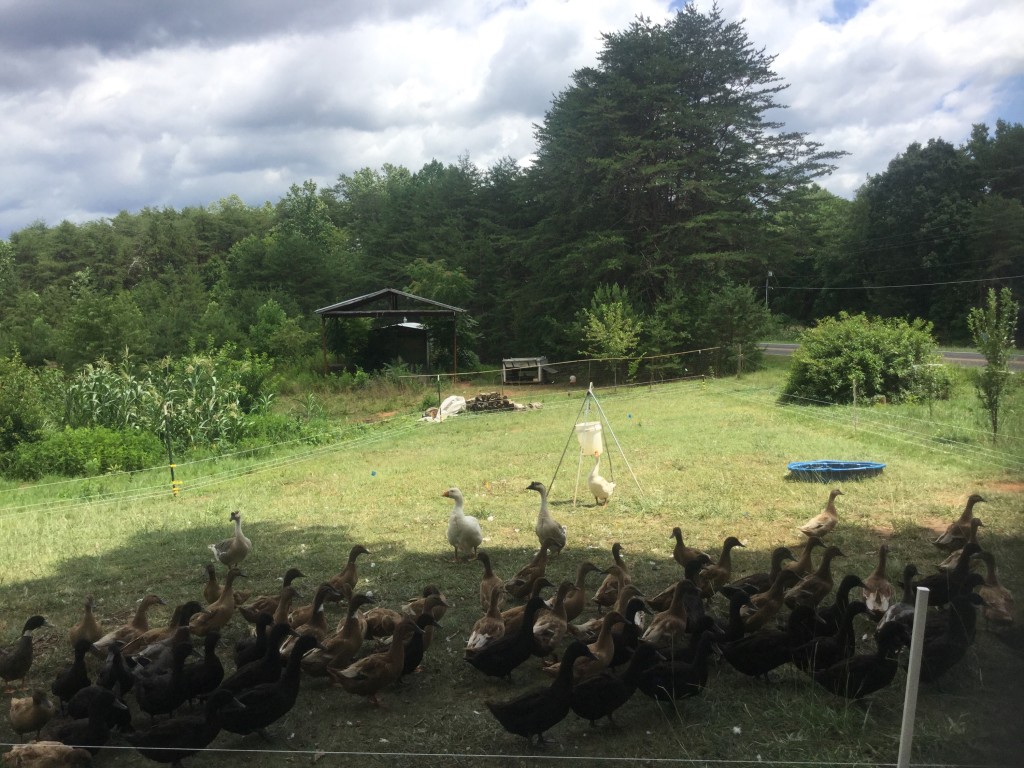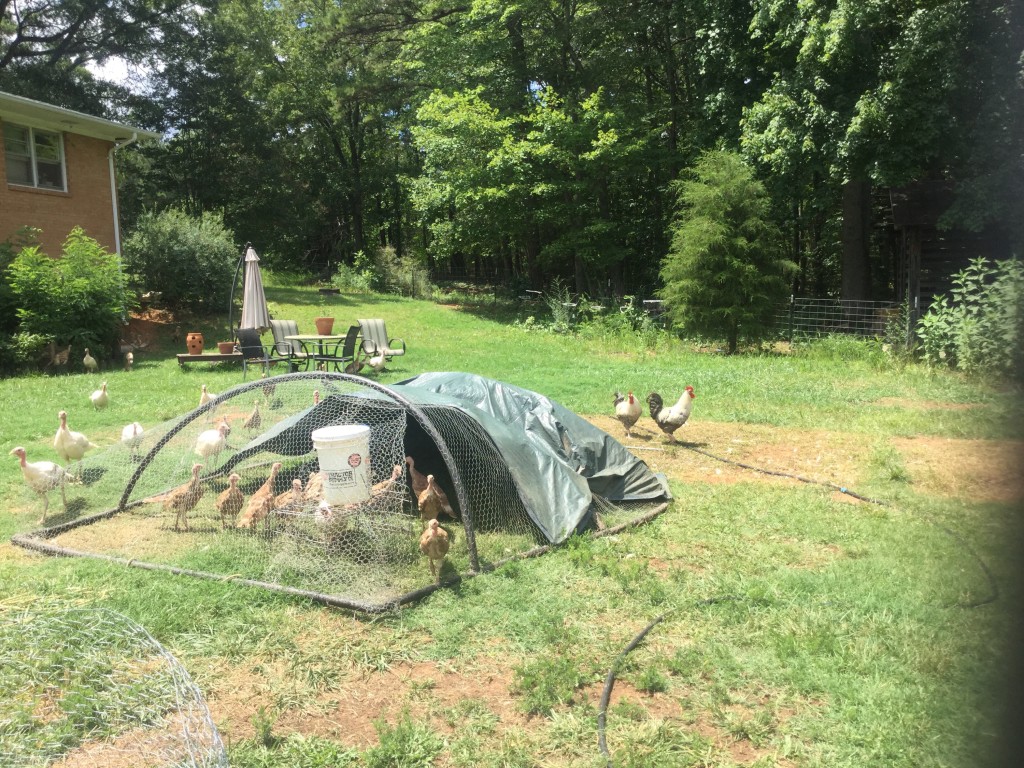When you have lots of huge, huge goose eggs, what do you do with them? Well, make a frittata, of course!
Each goose egg equates to 3 or 4 chicken or duck eggs, so unless you’re making omelets for the extended family, baking with goose eggs is one of your best options.
This recipe is simple, delicious, and fits into the Paleo or Weston A. Price diet ideology. Here it is:
Ingredients
- 6-8 goose eggs, broken and whisked together
- 1-2 pounds of sweet potatoes, cubed
- 1/2 pound of grass fed cheese, grated
- 2 onions, diced
- 2 green peppers, diced
- basil
- garlic powder
- salt
- red pepper flakes
- lard or duck fat
Materials
- large cast iron skillet or large sauté pan/pot
- large casserole dish
- whisk
- fork
- large mixing spoon
- mixing bowls
- sharp knife & cutting board
Directions
- Heat your cast iron skillet on medium and add your lard or duck fat.
- Begin sautéing the sweet potatoes and when they are about halfway cooked, add the diced onion and green pepper.
- Add salt, garlic, red pepper flakes, and liberal amounts of dried basil. Stir this mixture often and continue cooking until the sweet potatoes are tender when poked with a fork.
- In a large mixing bowl, crack the 6-8 goose eggs (the number your choose depends on the ratio of egg to other ingredients that you desire, and how much sweet potato you chose to use). Be sure that no shell ends up in the egg bowl… These shells are almost as think as a light ceramic dish, and could easily hurt you if you bit into one.
- Poke each yolk with a fork and begin stirring. Once the mixture can be blended with a whisk, switch to the whisk.
- Add the cooked sweet potato to the eggs and stir well with a large spoon.
- Add the grated cheese and stir well.
- Add more basil, garlic, and salt. The amount you add depends Up how much spice you like in your dish. I always add more than I expect will be needed, just to be sure the flavor is there, and it turns out great.
- Mix everything together thoroughly and pour this mixture into a large, greased casserole dish.
- Cook this dish in the oven on 375 until the top becomes a light golden color.
- Enjoy!
